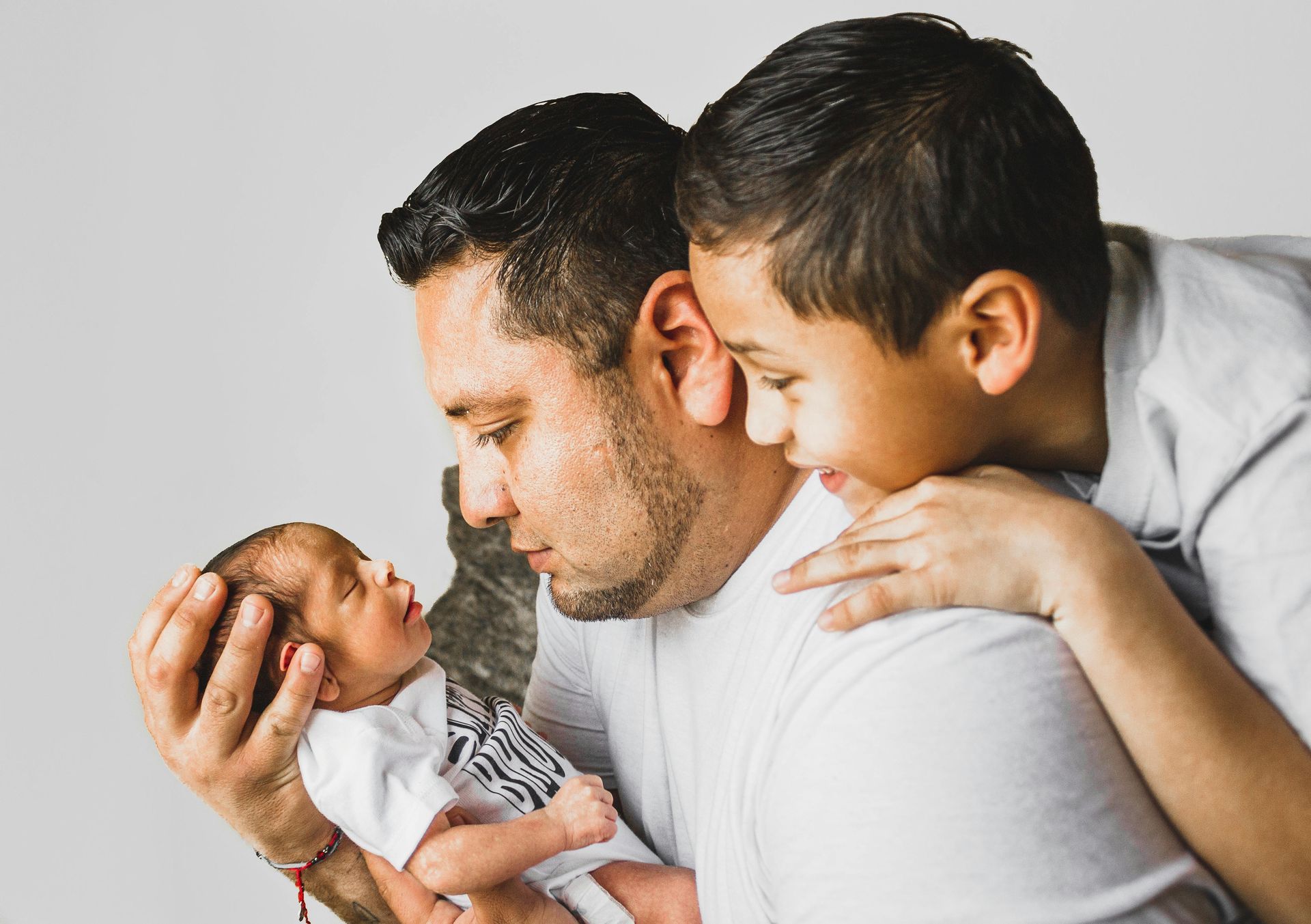Sleep Needs By Age | Wake Windows, Total Sleep Hours & More
Understanding Baby Sleep: Wake Windows and Sleep Needs by Age
As a new parent, it can be overwhelming trying to figure out how much sleep your baby needs and when they should be awake. Babies' sleep patterns change rapidly during the first year, and understanding their sleep needs can help improve their quality of rest—and yours too! One key concept to grasp is "wake windows"—the optimal amount of time babies should stay awake between naps. Too much or too little wake time can affect their ability to fall asleep easily, leading to more frequent wake-ups or an overtired baby. In this post, we'll explore how wake windows and sleep needs change as your baby grows, from 0-12 months.
Newborn to 3 Months (0-12 Weeks)
Wake Window: 30 minutes to 1 hour
Total Sleep: 14-18 hours per day
Newborns need a lot of sleep, and their wake windows are short, typically lasting between 30 minutes to an hour. At this age, babies are still getting used to the world outside the womb, so their sleep is divided between naps and longer stretches of sleep at night (although nighttime sleep can still be fragmented and unpredictable).
In these early weeks, your baby will typically sleep in short bursts throughout the day and night. Their total sleep time will be around 14-18 hours per day, but keep in mind that most of this sleep will be light, with frequent awakenings for feedings.
Key Points For Newborn Sleep:
- At this stage, sleep cycles are short (about 45 minutes), so babies may wake up frequently.
- Most babies will still need nighttime feedings.
- Try to watch for sleepy cues, as it’s easy to miss your baby’s sleep window when they are this young.
- Practice putting your newborn down awake to help lay a foundation for better sleep and sleep training in the future (you'll thank yourself for this!)
4-6 Months Old Sleep
Wake Window: 1.5 to 2 hours
Total Sleep: 12-15 hours per day
By the time your baby is 4 months old, you’ll notice they can stay awake for longer periods between naps. Their wake windows will gradually extend to about 1.5 to 2 hours. During this period, babies start to consolidate their sleep a bit more and may even begin to sleep longer stretches at night, though it’s still normal for some babies to need one or two nighttime feedings.
Total daily sleep is around 12-15 hours, with the majority of that sleep divided into 3-4 naps. Naps can range from 30 minutes to 2 hours depending on the baby.
Key Points About 4-6 Month Old Sleep:
- The transition from newborn sleep patterns (frequent naps) to more structured sleep begins.
- Establishing a consistent nap routine and bedtime can help set the stage for better sleep habits in the future.
- Start implementing a bedtime routine to encourage good sleep hygiene, such as a bath or a gentle lullaby.
- The 4 month regression can be a tough one, stay consistent in your routine and consider sleep training at 4.5-5 months to help them move through their sleep cycles without a sleep prop.
6-9 Month Old Sleep
Wake Window: 2.5 to 3 hours
Total Sleep: 12-14 hours per day
By 6 months, babies generally have a more predictable sleep schedule. At this point, many babies drop from 3 naps to 2 naps per day. Their wake windows stretch to 2.5 to 3 hours, and they typically sleep a solid 10-12 hours at night, with fewer nighttime feedings. However, some babies may still experience sleep disruptions due to teething or developmental milestones.
Babies around 6 months may also begin to develop a more defined circadian rhythm, meaning their sleep patterns become more aligned with day and night, and they begin to sleep more consistently at night.
Key Points About 6-9 Month Old Sleep:
- Most babies drop from 3 naps to 2 naps a day.
- Focus on developing a consistent sleep routine, including a calm and relaxing pre-sleep ritual.
- At this age, babies may experience separation anxiety or other sleep regressions as they become more aware of their surroundings.
9-12 Month Old Sleep
Wake Window: 3 to 4 hours
Total Sleep: 12-14 hours per day
As your baby approaches their first birthday, their wake windows extend even further. By now, most babies can stay awake for 3 to 4 hours between naps. Sleep tends to consolidate even more, with most babies sleeping 11-12 hours at night and taking 2 naps during the day (one in the morning and one in the afternoon).
This age is a big developmental leap—babies may be crawling, pulling up to stand, or even walking, which can affect their sleep patterns. Additionally, around 9 months, babies may experience another sleep regression due to these changes.
Key Points About 9-12 Month Old Sleep:
- Most babies take 2 naps a day at this age (morning and afternoon).
- Your baby’s nighttime sleep should be more consistent by now, though they may still wake up occasionally.
- Be prepared for possible sleep disruptions due to developmental milestones.
12 Month Old Sleep
Wake Window: 4 hours
Total Sleep: 12-14 hours per day
By their first birthday, most babies have developed a solid sleep routine. They can typically stay awake for about 4 hours between naps and will usually take two naps a day—one in the morning and another in the afternoon. Most babies this age sleep around 12-14 hours in total, including both nap time and nighttime sleep.
Night wakings may still happen occasionally, but they become less frequent as your baby transitions into toddlerhood. They may also begin to drop the morning nap in favor of a longer afternoon nap.
Key Points About 1 Year Olds Sleep:
- Babies usually transition to a 2-nap schedule by the time they are one year old.
- It’s a good time to reinforce a consistent bedtime routine to help them wind down at night.
- Begin to pay attention to their growing independence and new milestones, which may affect their sleep.
Tips for Managing Sleep During the First Year
- Create a Consistent Sleep Routine: Babies thrive on predictability. Establish a calming bedtime routine (such as a warm bath, story, or gentle lullaby) to signal to your baby that it’s time to sleep.
- Watch for Sleepy Cues: Every baby is different. While some may yawn, others might become fussy or rub their eyes. Pay attention to these cues to prevent your baby from becoming overtired, which can make it harder for them to fall asleep.
- Be Flexible: As babies grow, their sleep needs change quickly. Be prepared for occasional regressions or changes in their sleep patterns as they reach new developmental milestones.
- Keep Naps in a Quiet Environment: The best nap environment is a dark room, with a white noise machine and a cool environment (with your baby properly dressed).
- Don’t Be Too Hard on Yourself: Every baby is different. Some babies sleep longer or more consistently, while others may need extra comfort or have sleep disruptions. Trust your instincts, follow their wake windows and help them learn independent sleep and you'll find yourself in a great place with sleep before you know it.
The first year of your baby’s life is a time of incredible growth and change, and their sleep needs reflect that. By understanding and adjusting to their natural sleep rhythms, you can help them (and yourself!) get the rest you both need. Remember, the key is to be flexible and patient as you navigate this journey. With time, your baby will develop their own sleep pattern, and soon enough, you'll both enjoy longer stretches of peaceful rest. If you are finding yourself struggling with sleep, please know you are not alone and you don't have to do it alone. Please check out my sleep services and find one that will help your family best.



